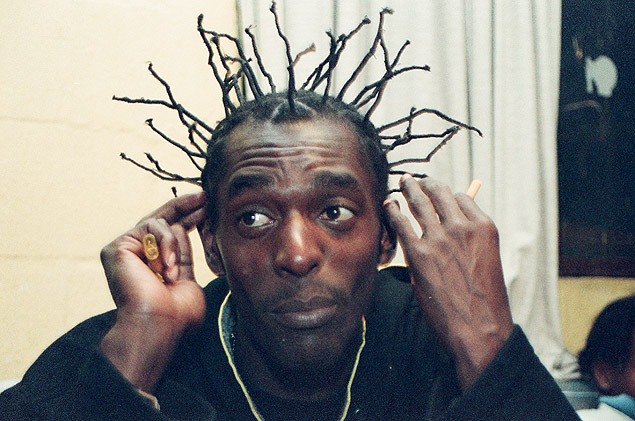Latest Photo Galleries
Brazilian Markets
17h38 Bovespa |
+1,50% | 126.526 |
16h43 Gold |
0,00% | 117 |
17h00 Dollar |
-0,93% | 5,1156 |
16h30 Euro |
+0,49% | 2,65250 |
ADVERTISING
Rap Icon Sabotage Album Launched 13 Years After His Murder
10/18/2016 - 13h55
Advertising
AMANDA NOGUEIRA
FROM SÃO PAULO
Written and recorded by Mauro Mateus dos Santos, better known as Sabotage, one day before his murder at 29 years of age in 2003, the lyrics from "Quem Viver Verá" (Who Lives Will See) sheds light on the potential of the Rapper before Emicida, Rashid and Projota. "Who lives will see, rap is the sound/ [You] can come, favela (slum) is a good place", the Rapper presaged in one of the 11 songs which make up the eagerly anticipated album posthumously titled after his nickname and launched on Monday (the 17th) on Spotify.
To followers in this territory the second album by Sabotage reinforces his message: rap is a commitment.
Like Sabotage's debut album, the second was produced by Instituto, run by Daniel Ganjaman,Tejo Damasceno and Rica Amabis.
"He was better than most, timeless. There is rap that is done for the marketplace, and I'm not speaking badly of it, a lot of it is good, but they come along transforming like any other pop artist. When folks talk about classic national rap, it has a value that lasts for a lifetime", said Damasceno.
The production was made from recordings that Sabotage had done during the week of his death. Left unfinished, they were retouched by a robust team of the composer's old teammates, including names like Tropkillaz, DBS, Negra Li, Quincas Moreira, Dexter, BNegão, Céu and Sandrão.
Orphaned when young, the Rapper's sons, Tamires (now 22 years old) and Wanderson dos Santos (23) grew up with homage and tribute to their father as the disk was being produced.
Along the way, they ran into the dichotomy between the artist and the ex-trafficker, but didn't make judgments. "When folks are born and grow up in the favela (slum), crime isn't the only option but it is the easiest one for getting money. I've never been ashamed of my father's past, this has never bothered me, but I've never been proud of it", said Tamires.
For him, the album serves as a reminder of his father; and the kid refers especially to the track "País de Fome" (Country of Hunger). Produced by Cia, the song which initially didn't have a refrain was produced in a way to call attention to its words.
Right at the beginning, news is heard of Sabotage's death, followed by a description of the injustice involving those he knows. "It's a song where he talks about people who have already been taken, like my grandmother, where he is saying goodbye to friends that he didn't have the chance to. I won't hear him say my name any more but in the music I hear it", said.
| Cesar Schaeffer/Divulgação | ||
 |
||
| Mauro Mateus dos Santos, better known as Sabotage |
Read the article in the original language
Translated by LLOYD HARDER



